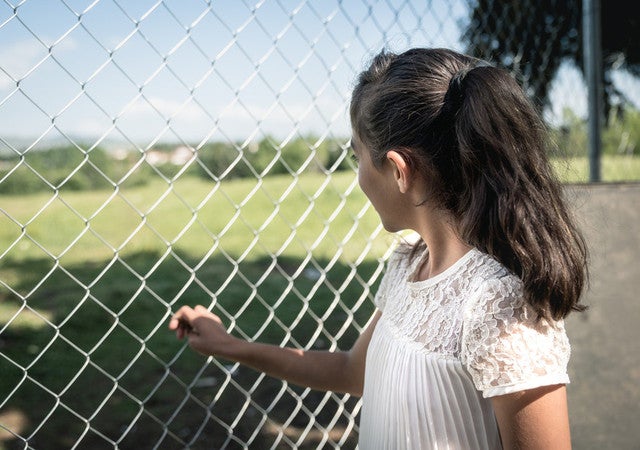Refugee children stranded in Greece are so unschooled they 'cannot even hold a pencil'
More than 20 per cent of refugee children in Greece have never been to school

Your support helps us to tell the story
From reproductive rights to climate change to Big Tech, The Independent is on the ground when the story is developing. Whether it's investigating the financials of Elon Musk's pro-Trump PAC or producing our latest documentary, 'The A Word', which shines a light on the American women fighting for reproductive rights, we know how important it is to parse out the facts from the messaging.
At such a critical moment in US history, we need reporters on the ground. Your donation allows us to keep sending journalists to speak to both sides of the story.
The Independent is trusted by Americans across the entire political spectrum. And unlike many other quality news outlets, we choose not to lock Americans out of our reporting and analysis with paywalls. We believe quality journalism should be available to everyone, paid for by those who can afford it.
Your support makes all the difference.More than one in five school-aged refugee children in Greece have never been to school, a study has revealed.
Child refugees stranded in Greece have been out of school for on average 1.5 years, and many of them “cannot even hold a pencil”, according to new research by aid agency Save the Children.
Syrian child refugees have been away from the classroom for the longest - with an average of over two years (25.8 months) out of the classroom.
Afghan child refugees have been out of school for an average of 10.7 months.
Some teachers in the camps have set up make-shift classrooms, but they say the children are already lagging far behind the schooling levels they should be attaining.
Sacha Myers, Save the Children's communications manager, said: “Several refugee teachers have started their own initiatives with the small amount of materials they have.
“One primary school teacher from Syria who is now living in Nea Kavala has cleared a space in her tent and has 25 children attending Arabic and maths classes. She told our staff the children have not learnt anything for three or four years.
“Many don't even know how to hold a pencil or sit and listen in class.”
The study, conducted in northern Greece, collected information on around 130 children between the ages of 6 to 17 years old.
Rowan, 12, whose name had been changed to protect her identity, was among the children interviewed. She fled from Syria with her family four years ago when she was in the equivalent of Year 3 and has not been to school since.
Until a few months ago, her family had been staying in Turkey, but they did not have the money to send her to school there.
She said: “Now I should be in middle school. I feel like I missed so many things. We used to do theatre with the other children. I wish to go to school again.
“My family has tried to teach me some things since I left school. In Syria I was good and I enjoyed meeting the other children every day, playing together and learning.
“It is different when you have to do it all by yourself. The only thing that I used to do in school that I still do is drawing.”
Helle Thorning-Schmidt, CEO of Save the Children International, said: “Children who have risked everything to reach Europe are now wasting the best years of their lives, in refugee camps, in detention centres, and behind border fences and walls.
“Many know nothing more than conflict, violence, forced displacement, and their current deplorable conditions which offer little hope for their futures.”
More than three quarters of the refugee children interviewed said going to school was one of their top priorities. Ninety-nine percent of children and parents surveyed said war and displacement were the main barriers to accessing education.
In Syria, one in five schools have been damaged, destroyed or occupied. Around 2.8 million Syrian children are currently out of school.
Once displaced for six months a refugee is likely to remain displaced for at least three years, with the average length of displacement now estimated at 17 years – almost an entire childhood.
Save the Children is currently scaling up its education activities in Greece to provide child refugees with access to basic education through temporary classrooms.
The agency has been providing non-formal lessons – including English and Greek classes – through its child friendly spaces for refugees in Greece.
Refugees and migrants from Afghanistan make up 25 per cent of Mediterranean sea arrivals in Greece, with 49 per cent coming from Syria.
Join our commenting forum
Join thought-provoking conversations, follow other Independent readers and see their replies
Comments